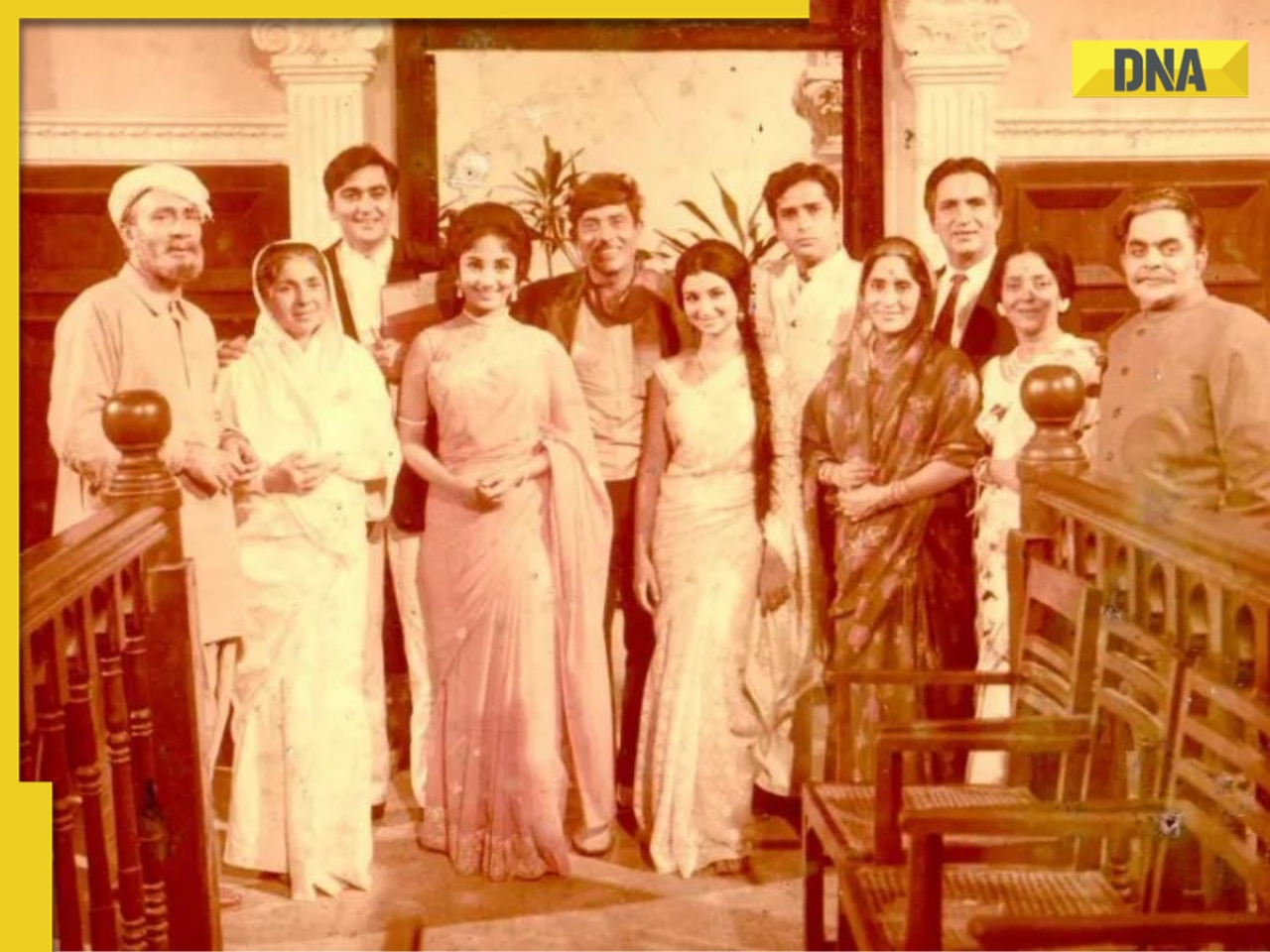Jonathan Littell won France's top literary prize, the Goncourt, for his novel Les Bienveillantes.
PARIS: An American, Jonathan Littell, on Monday won France's top literary prize, the Goncourt, for his novel Les Bienveillantes (The Kindly Ones, or The Well-Meaning Ones), about a fictional SS officer's memoirs.
The prize jury said Littell's debut novel easily triumphed over a field of three other works from French authors with a 7-3 vote.
The book is already a sensation in France, where it sits atop the best-seller list with more than 250,000 copies sold.
Littell, the 39-year-old son of US journalist and spy novel writer Robert Littell, was not present to receive the honour. His French editor said he remained at his home in Barcelona, Spain, and transmitted a message saying "he prefers to stay out of the limelight."
Littell "is very happy and he accepts this prize with pleasure," added Antoine Gallimard, of the Gallimard publishing house, stressing that no form of disrespect was intended by his absence.
"He has no time for publicity, partly out of shyness, but also because he believes literature is not an entertainment industry. What is important is the book itself," Gallimard said, adding that another 150,000 copies would now be printed. Born in New York in 1967, Littell moved to France and spent his childhood there until the age of 18, when he returned to the United States for university. After graduating, he spent 15 years travelling around the world, much of it working for humanitarian organisations.
Fully bilingual, he wrote his 900-page book in France, though admitted that he wrote up much of his methodical research in English.
Les Bienveillantes has already won a prestigious Academie Francaise prize given to first-time authors writing in French. It is soon to be translated and published in Britain, the United States and other countries after auctions believed to have netted Littell more than a million dollars.
The novel tells the story of an unrepentant Nazi SS officer who recounts his extermination of Jews in World War II.
"What interested me was to understand what led people to become torturers," Littell has said in one of his rare interviews. The premise, though, has earned criticism from some quarters, and a German historian, Peter Schottler, has called the book inaccurate and unconvincing.
The head of the Goncourt jury, Edmonde Charles-Roux, brushed those views aside, enthusiastically endorsing Littell's book after Monday's vote.
"You can't dismiss such a monument," he said.
"The vote was definitive, as it always is for the Goncourt. It was very sharp: some for, others against, but it was even so an impressive vote," Charles-Roux said.
A jury member, Jorge Semprun, said he was "stunned by this amazing book -- it's the literary event of this half-century." Littell's triumph was the high point of an invasion of foreign writers who have invigorated France's often staid literary world by sweeping several top prizes.
On Monday, a smaller literary honour, the Renaudot, was awarded to a Congolese-born writer, Alain Mabanckou, just after the Goncourt announcement.
His book, Memoires de porc-epic (Memoires of a Porcupine), is a fantasy tale about a porcupine named Ngoumba who explores an Africa brimming with humanity.
Last week, Nancy Huston, a Canadian-born author who writes mostly in French, and an Irish novelist, Nuala O'Faolain, walked off with the top categories of the Femina book awards, so called because the jury is an all-women panel.
Huston won the main Femina prize for her latest novel Lignes de Faille (Faultlines), which tells the story of a family through the eyes of four six-year-old children, from successive generations.
O'Faolain walked off with the Femina foreign writer's trophy for The Story of Chicago May, a fictionalised biography of an Irish prostitute and gangster in 19th century America.
Another top book award, the Medici for best non-French writing, went to Norman Manea, a 70-year-old Romanian Jewish novelist who lives in New York. His Hooligan's Return - A Memoir recounted his return to Romania after the fall of Communism.
![submenu-img]() House of the Dragon season 2 trailer: Rhaenyra wages an unwinnable war against Aegon, Dance of the Dragons begins
House of the Dragon season 2 trailer: Rhaenyra wages an unwinnable war against Aegon, Dance of the Dragons begins![submenu-img]() Panchayat season 3 trailer: Jitendra Kumar returns as sachiv, Neena, Raghubir get embroiled in new political tussle
Panchayat season 3 trailer: Jitendra Kumar returns as sachiv, Neena, Raghubir get embroiled in new political tussle![submenu-img]() Apple partners up with Google against unwanted tracker, users will be alerted if…
Apple partners up with Google against unwanted tracker, users will be alerted if…![submenu-img]() Meet actress whose debut film was superhit, got married at peak of career, was left heartbroken, quit acting due to..
Meet actress whose debut film was superhit, got married at peak of career, was left heartbroken, quit acting due to..![submenu-img]() Who is the real owner of Delhi's Connaught Place and who collects rent from here?
Who is the real owner of Delhi's Connaught Place and who collects rent from here?![submenu-img]() Meet man who is 47, aspires to crack UPSC, has taken 73 Prelims, 43 Mains, Vikas Divyakirti is his...
Meet man who is 47, aspires to crack UPSC, has taken 73 Prelims, 43 Mains, Vikas Divyakirti is his...![submenu-img]() IIT graduate gets job with Rs 100 crore salary package, fired within a year, he is now working as…
IIT graduate gets job with Rs 100 crore salary package, fired within a year, he is now working as…![submenu-img]() Goa Board SSC Result 2024: GBSHSE Class 10 results to be out today; check time, direct link here
Goa Board SSC Result 2024: GBSHSE Class 10 results to be out today; check time, direct link here![submenu-img]() CUET-UG 2024 scheduled for tomorrow postponed for Delhi centres; check new exam date here
CUET-UG 2024 scheduled for tomorrow postponed for Delhi centres; check new exam date here![submenu-img]() Meet man who lost eyesight at 8, bagged record-breaking job package at Microsoft, not from IIT, NIT, VIT, his salary is…
Meet man who lost eyesight at 8, bagged record-breaking job package at Microsoft, not from IIT, NIT, VIT, his salary is…![submenu-img]() DNA Verified: Is CAA an anti-Muslim law? Centre terms news report as 'misleading'
DNA Verified: Is CAA an anti-Muslim law? Centre terms news report as 'misleading'![submenu-img]() DNA Verified: Lok Sabha Elections 2024 to be held on April 19? Know truth behind viral message
DNA Verified: Lok Sabha Elections 2024 to be held on April 19? Know truth behind viral message![submenu-img]() DNA Verified: Modi govt giving students free laptops under 'One Student One Laptop' scheme? Know truth here
DNA Verified: Modi govt giving students free laptops under 'One Student One Laptop' scheme? Know truth here![submenu-img]() DNA Verified: Shah Rukh Khan denies reports of his role in release of India's naval officers from Qatar
DNA Verified: Shah Rukh Khan denies reports of his role in release of India's naval officers from Qatar![submenu-img]() DNA Verified: Is govt providing Rs 1.6 lakh benefit to girls under PM Ladli Laxmi Yojana? Know truth
DNA Verified: Is govt providing Rs 1.6 lakh benefit to girls under PM Ladli Laxmi Yojana? Know truth![submenu-img]() Ananya Panday stuns in unseen bikini pictures in first post amid breakup reports, fans call it 'Aditya Roy Kapur's loss'
Ananya Panday stuns in unseen bikini pictures in first post amid breakup reports, fans call it 'Aditya Roy Kapur's loss'![submenu-img]() Remember Harsh Lunia? Just Mohabbat child star, here's how former actor looks now, his wife is Bollywood's popular...
Remember Harsh Lunia? Just Mohabbat child star, here's how former actor looks now, his wife is Bollywood's popular...![submenu-img]() Mother's Day 2024: Bollywood supermoms who balance motherhood, acting, and run multi-crore businesses
Mother's Day 2024: Bollywood supermoms who balance motherhood, acting, and run multi-crore businesses![submenu-img]() Rocky Aur Rani's Golu aka Anjali Anand shocks fans with drastic weight loss without gym, says fitness secret is...
Rocky Aur Rani's Golu aka Anjali Anand shocks fans with drastic weight loss without gym, says fitness secret is...![submenu-img]() In pics: Ram Charan gets mobbed by fans during his visit to Pithapuram for ‘indirect campaign’ for uncle Pawan Kalyan
In pics: Ram Charan gets mobbed by fans during his visit to Pithapuram for ‘indirect campaign’ for uncle Pawan Kalyan![submenu-img]() Haryana Political Crisis: Will 3 independent MLAs support withdrawal impact the present Nayab Saini led-BJP government?
Haryana Political Crisis: Will 3 independent MLAs support withdrawal impact the present Nayab Saini led-BJP government?![submenu-img]() DNA Explainer: Why Harvey Weinstein's rape conviction was overturned, will beleaguered Hollywood mogul get out of jail?
DNA Explainer: Why Harvey Weinstein's rape conviction was overturned, will beleaguered Hollywood mogul get out of jail?![submenu-img]() What is inheritance tax?
What is inheritance tax?![submenu-img]() DNA Explainer: What is cloud seeding which is blamed for wreaking havoc in Dubai?
DNA Explainer: What is cloud seeding which is blamed for wreaking havoc in Dubai?![submenu-img]() DNA Explainer: What is Israel's Arrow-3 defence system used to intercept Iran's missile attack?
DNA Explainer: What is Israel's Arrow-3 defence system used to intercept Iran's missile attack?![submenu-img]() House of the Dragon season 2 trailer: Rhaenyra wages an unwinnable war against Aegon, Dance of the Dragons begins
House of the Dragon season 2 trailer: Rhaenyra wages an unwinnable war against Aegon, Dance of the Dragons begins![submenu-img]() Panchayat season 3 trailer: Jitendra Kumar returns as sachiv, Neena, Raghubir get embroiled in new political tussle
Panchayat season 3 trailer: Jitendra Kumar returns as sachiv, Neena, Raghubir get embroiled in new political tussle![submenu-img]() Meet actress whose debut film was superhit, got married at peak of career, was left heartbroken, quit acting due to..
Meet actress whose debut film was superhit, got married at peak of career, was left heartbroken, quit acting due to..![submenu-img]() 'Ek actress 9 log saath leke...': Farah Khan criticises entourage culture in Bollywood
'Ek actress 9 log saath leke...': Farah Khan criticises entourage culture in Bollywood![submenu-img]() Bollywood’s 1st multi-starrer had 8 stars, makers were told not to cast Kapoors; not Sholay, Nagin, Shaan, Jaani Dushman
Bollywood’s 1st multi-starrer had 8 stars, makers were told not to cast Kapoors; not Sholay, Nagin, Shaan, Jaani Dushman![submenu-img]() Who is the real owner of Delhi's Connaught Place and who collects rent from here?
Who is the real owner of Delhi's Connaught Place and who collects rent from here?![submenu-img]() Viral video: Chinese artist's flaming 'stairway to heaven' stuns internet, watch
Viral video: Chinese artist's flaming 'stairway to heaven' stuns internet, watch![submenu-img]() Video: White House plays 'Sare Jahan Se Achha Hindustan Hamara" at AANHPI heritage month celebration
Video: White House plays 'Sare Jahan Se Achha Hindustan Hamara" at AANHPI heritage month celebration![submenu-img]() Viral video: Bear rides motorcycle sidecar in Russia, internet is stunned
Viral video: Bear rides motorcycle sidecar in Russia, internet is stunned![submenu-img]() Driver caught on camera running over female toll plaza staff on Delhi-Meerut expressway, watch video
Driver caught on camera running over female toll plaza staff on Delhi-Meerut expressway, watch video























































)
)
)
)
)
)